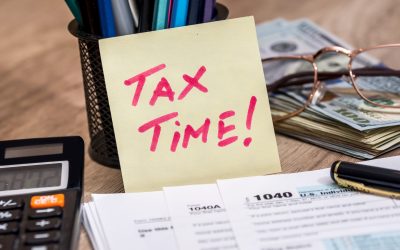
When markets take a spill, especially when it comes to your retirement investments, it’s harder to find ways to meet your financial goals. If you were relying on IRA or 401(k) withdrawals to cover your expenses, doing so when markets are down would decrease the lifespan of your savings. And if you’re nearing retirement, market losses may provide cause to push back the time you enter retirement.
While all these concerns are legitimate, there is a hidden benefit to selling your losing investments at a loss. Using a strategy called tax-loss harvesting, you can earn capital gains tax credits on your investment losses.
What is Tax-Loss Harvesting?
This strategy is when you sell stocks, mutual funds, exchange-traded funds (ETFs), and other investments carrying a loss to offset gains from other investments sold. Essentially, you can sell investments at a loss to cancel out investments you sold at a gain or even on personal income. It’s crucial to know that tax-loss harvesting only defers your capital gains taxes; it does not eliminate them. But if an investor has no capital gains to offset in the year the capital loss was “harvested,” the loss can be carried over to offset future gains or future income – there is no expiration date.[1]
When is the Right Time for Tax-Loss Harvesting?
This strategy is beneficial if you have a year in which your income or investment gains are abnormally high. Usually, around the time you retire, you will be adjusting how you cover your costs from external income to your own savings and investments. Doing so can create large, realized investment gains or abnormal personal income amounts on your tax returns. If this might be the case for you, engaging in tax-loss harvesting may help you save on taxes in a sensible, legal way.
When it comes to tax-loss harvesting, timing is key. Knowing what tax years to make your asset adjustments is an important component of properly offsetting losses. But be sure to know other rules that may come with performing the tax-loss harvesting strategy. The Wash-Sale rule is a highly important one to know in order to execute this strategy well. This rule prohibits you from claiming investment losses if you reinvested your assets in a similar or identical asset within 30 days of selling your previous one.[2]
Key Takeaway
Advocates of this strategy say that tax-loss harvesting is a shrewd way to turn a negative into a positive. Critics warn that tax-loss harvesting requires expertise and that the strategy can easily backfire, even when done professionally.[3] So, it’s generally a poor decision to sell an investment, even one with a loss, solely for tax reasons. However, it can be a useful part of your overall financial planning and investment strategy if the situation calls for it. Just remember that executing such a strategy is not easy to do on your own.
Whether you are concerned about optimizing your retirement holdings or have a different retirement concern, you can sign up with us for a review of your financial situation to help you get a step closer to your financial goals.



